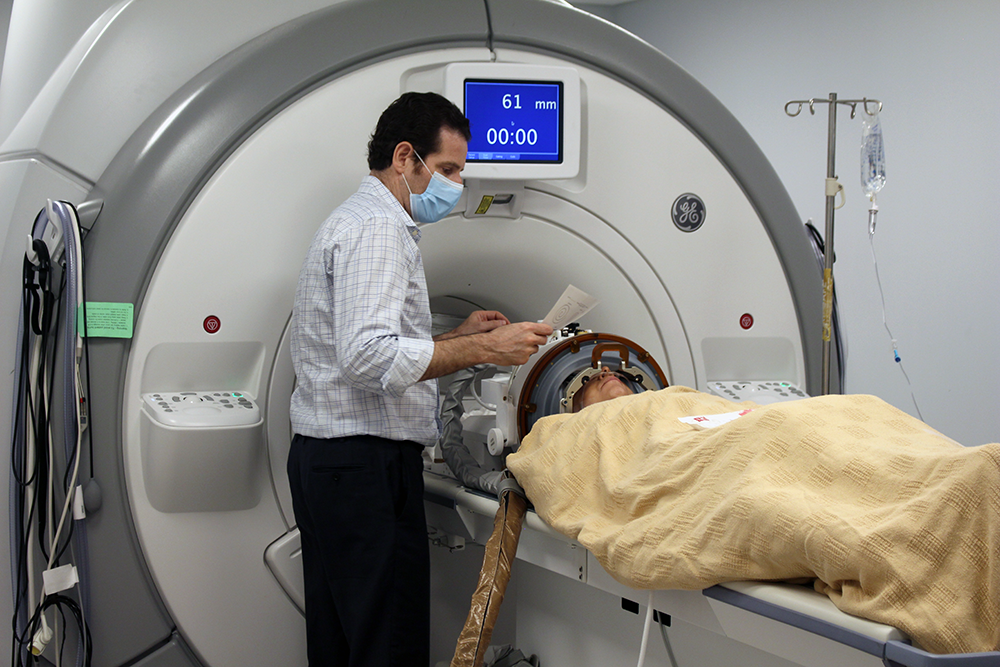
Dr. Michael Kaplitt performed an ablation of the pallidothalamic tract (PTT) using high-intensity focused ultrasound last week as he treated the first patient in a new clinical trial for individuals with Parkinson’s disease. The trial, “Evaluation of the Safety and Effectiveness of Bilateral Exablate Ablation of the Pallidothalamic Tract (PTT) for the Treatment of the Motor Complications of Parkinson's Disease (PD)” is designed to deliver highly targeted ultrasound beams to the PTT to improve motor control in patients with Parkinson’s disease.
The PTT connects two key brain regions that are malfunctioning in patients with Parkinson’s disease. The goal of the study is to determine safety and effectiveness of this non-invasive procedure to try to restore more normal activity of circuits affected by the dysfunctional brain regions affected by this disorder.
The first patient in the trial, a 62-year-old woman with significant motor complications of Parkinson’s disease, underwent the treatment on the left side of her brain, greatly improving motor control on the right side (her dominant side), and went home the same day. The patient, whose career in finance as well as her activities of daily living have been greatly affected by her condition, achieved improved motor control and strength on her right side after the treatment. She will be evaluated for treatment on the other side of her brain in six months.
High-intensity focused ultrasound has been used successfully to calm essential tremor for several years. Dr. Kaplitt was one of the leaders of the clinical trial of its effectiveness for ET and performed the first procedure in New York after FDA approval in 2016 (see news article), and the technology is currently being tested for symptoms of Parkinson’s disease.
The procedure begins with the use of magnetic resonance imaging (MRI) to pinpoint the exact location in the brain to target. The patient, who is awake throughout the procedure, is then fitted with a helmet that holds an array of 1,000 sources of ultrasound energy, each beam so small and low-energy that it passes harmlessly through brain tissue on its way to the target. No single wave damages healthy brain tissue, but the sum of the energy reaching the focus is enough to create a lesion that erases the malfunctioning area of the brain.
The trial, which is now recruiting patients, will treat up to 50 individuals over the next six months, with followup for a year after that. For additional information, contact Dr. Kaplitt at 212-746-4966.
More about Parkinson's disease
More about focused ultrasound